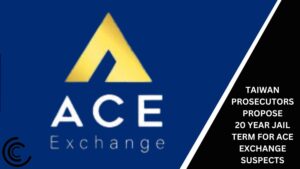Key takeaways:
- In a letter to G20 finance ministers and central bankers, FSB chair Klaas Knot stated that the outlook for global financial stability is still difficult.
- Last year, the G20 adopted a policy on a worldwide regulatory and supervisory framework for digital assets.
In a letter to G20 finance ministers and central bankers, Financial Stability Board (FSB) chair Klaas Knot stated that the outlook for global financial stability is still difficult.
However, the FSB has a strategy, which it presented prior to the ministers and bankers conference in São Paulo on February 28 and 29. One of the things it will focus on is asset tokenization.
In addition to digital innovation, the FSB letter, dated February 20 and made public on February 26, addresses critical topics such as cross-border payments, climate change, and non-bank financial intermediation. Regarding its planned cryptocurrency action, Knot wrote:
“In 2024 we will deliver reports on the financial stability implications of the tokenisation of assets and of AI,”
Last year, the G20 adopted a policy on a worldwide regulatory and supervisory framework for digital assets. Based on the July-passed G20 New Delhi Leaders’ Declaration, the October adoption of the G20 Roadmap on Crypto Assets took place. The plan was suggested in a Synthesis Paper that the International Monetary Fund and the FSB worked together to produce.
In October, the FSB said that it would provide a progress report on the roadmap’s execution. Furthermore, it intends to suggest a structure for exchanging event reports, enabling the simultaneous sharing of incident data with several financial institutions and authorities. According to the letter:
“Accelerating digitalisation across all parts of finance has improved efficiencies but also increased the interconnectedness of the global financial system.”
The G20’s Crypto-Asset Reporting Framework for tax authorities, which was published in October, is one of the other international information exchange frameworks that have been proposed.
In the course of investigating cross-border payments, the FSB will tackle issues related to Know Your Customer and Anti-Money Laundering.
The G20 unites the European Union, the African Union, and 19 other countries. Brazil took up the G20 presidency this year from India, which was the first to stress the necessity of international regulation of cryptocurrencies. In 2025, South Africa will assume the G20’s leadership role.
The Bank for International Settlements (BIS) is an autonomous association and “hosts” the FSB. It aims to encourage financial regulators’ worldwide collaboration and information sharing.











